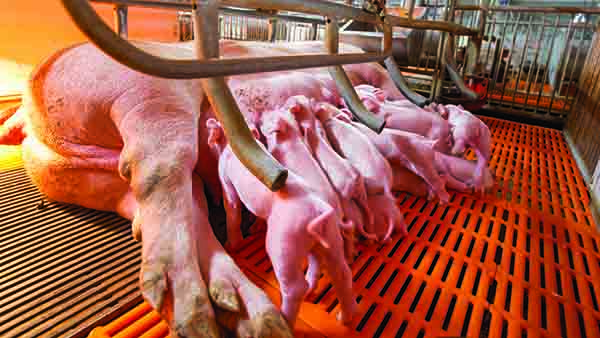It is not realistic to contemplate banning farrowing crates as soon as 2027 at EU or UK level, according to NPA chief executive Zoe Davies.
The European Citizens’ Initiative (ECI) ‘End the Cage Age’ campaign is calling for cages to be banned from 2027. In its response to the initiative last week, the European Commission announced its intention to propose legislation by the end of 2023 to ban the use of cages in farming, including farrowing crates.
However, the Commission has not committed to a ban within six years. It will, however, ‘assess the feasibility of working towards the proposed legislation entering into force from 2027’. It has committed to adopting a species-by-species approach to the ban and has acknowledged the need for a reasonable transition period.
The Commission will aim to complete an impact assessment, covering the socio-economic and environmental implications of the measures and the benefits to animal welfare, using evidence gathered from an EFSA report, before the end of 2022, with a public consultation planned for early 2022.
It has also promised that farmers will be supported, financially and through the provision of training, to help them manage the transition and it is looking at various ways to address the threat posed to EU producers from cheaper imports produced using cages.
Meanwhile, Defra has said it is ‘examining the use of cages’, and is expected to make an announcement at some point.
‘Impossible timescale’
Dr Davies gave an interview for Monday’s Farming Today programme (approx 7 mins, 40 secs) to explain how the Commission announcement could affect the UK.
Asked about the push by NGOs for a ban within six years, she said: “In our view, 2027 is an impossible ask. We have been doing a lot of work within the industry and with Defra looking at what the transition would entail and purely from a practical point of view, we believe it will take 20-30 weeks per farm to transition.
“It is going to cause major disruption to pork supply and we have very few specialist building companies that could do the transition work.”
She said there was ‘huge concern’ out there among producers about the practical implications and the costs involved in making the change, and said the UK industry would be seeking similar support and protection arrangements to that pledged at EU level.
Dr Davies also outlined the potential problems with getting planning permission sorted in time. “The entire supply chain needs to work together to help producers do this, otherwise more will go out of business,” she said.
She highlighted how the industry was currently working on finding suitable alternatives to conventional farrowing crates to balance the need to give the sow more freedom, while also protecting piglets.
While there have been promising results on farms that have trialled temporary crating, which allow the sow to be confined for a few days after farrowing, piglet mortality has been too high with complete free farrowing pens, she explained.
The NPA has been working with Defra by feeding in practical information, which it is hoped will help inform their policy making, particularly around the practicalities of the transition needed on farm so that policy makers are aware of the complexity of the task and therefore set a sensible transition period.




